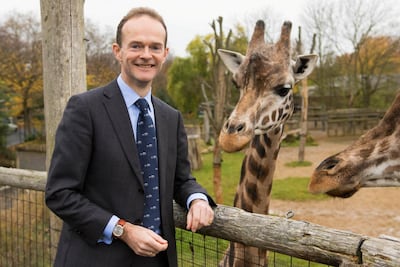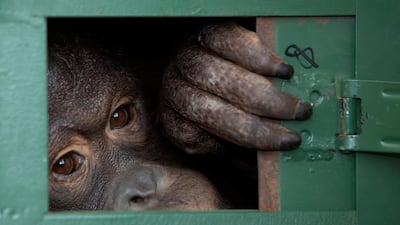Along with millions around the world, I have been following the outbreak of the novel strain of coronavirus, reported to have begun at a wildlife market in Wuhan, China. I have been shocked by the apparent severity of the epidemic and the tragic loss of life. Sadly, however, as head of the Zoological Society of London, an international conservation charity, to me the outbreak's source comes as little surprise.
For years, research by ZSL’s wildlife-health experts has shown that so-called wet markets, common to much of South-East Asia, pose a considerable risk to public health. These markets – where wild-caught and domestic animals are kept in close and constant contact with people and one another – increase the likelihood of infections passing between naturally isolated wildlife populations, and even transferring to humans to emerge as new diseases.
Based on the virology evidence available to date, this strain of coronavirus almost certainly came from a species of bat – though whether it transferred directly from bats to people remains unknown. It is entirely possible that in the unnaturally close quarters of a wet market, the virus could pass from bats to other species first, which makes closing these markets the highest priority for the future protection of both human and wildlife health.

The demand created by the sale of wildlife in China and elsewhere drives an illegal trade that threatens the survival of many species globally. Worth up to $23 billion a year, this criminal activity has far-reaching and devastating consequences for wildlife and people alike. As well as driving animals like saker falcons, tigers, cheetahs and seahorses to extinction, it facilitates corruption, funds organised crime and exploits the poorest and most marginalised communities.
At ZSL, we are entirely supportive of the Chinese Government’s decision to temporarily ban the sale of wildlife. But we also ask that they go even further. The ban must become permanent. Re-opening the trade in wild-caught animals would threaten the security of global biodiversity. It would risk exacerbating the illegal wildlife trade crisis, compromising wildlife health by spreading diseases between populations and species. Moreover, it would jeopardise global public health by creating future epidemics. The next step China needs to take is clear; but unregulated wildlife trade is a worldwide problem and so the responsibility to tackle it rests with us all.
The good news is that with expertise, investment and protection, populations previously decimated by poaching can recover. We have the evidence to prove this, with examples like ZSL’s successful reintroduction of two gazelle species into the Uruq Bani Ma’arid protected area of Saudi Arabia 25 years ago.

Between 1995 and 1997, our experts released 73 Arabian gazelles and 205 sand gazelles to habitats where both had been extinct for more than 30 years. Monitoring proves the groups we introduced are thriving. Globally, however, both species are in steep decline and the population of sand gazelles re-introduced by ZSL is now considered the largest in the world.
The United Arab Emirates should be very proud of its wildlife and, through our work together, I have seen first-hand the government’s commitment to conservation. Today the Mohamed bin Zayed Species Conservation Fund protects 1,371 species and sub-species, and the global effort behind the successful re-introduction of the Arabian oryx and scimitar-horned oryx would never have been possible without the Environment Agency of Abu Dhabi. ZSL is a proud partner in this flagship programme.
The illegal wildlife trade is not tomorrow’s problem. It is happening now, and it is happening around the world, including the UAE. The coronavirus outbreak highlights the way this issue links people and animals from distant countries. This criminal trade impacts directly on you and me. If we can bring the enormous, global expertise we have in the fields of disease eradication, human development and law enforcement together to tackle the illegal wildlife trade, then I believe we can have a substantial impact on the future of all life on Earth.
Dominic Jermey is the Director General of the Zoological Society of London and former UK ambassador to the UAE

